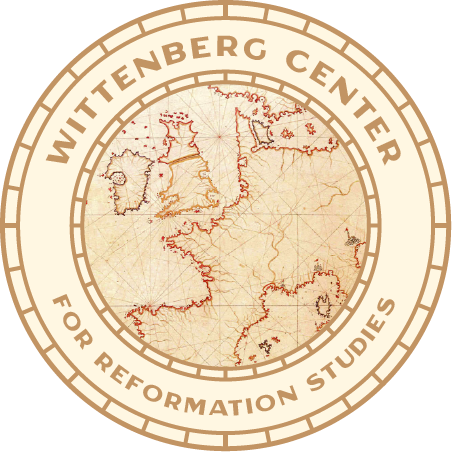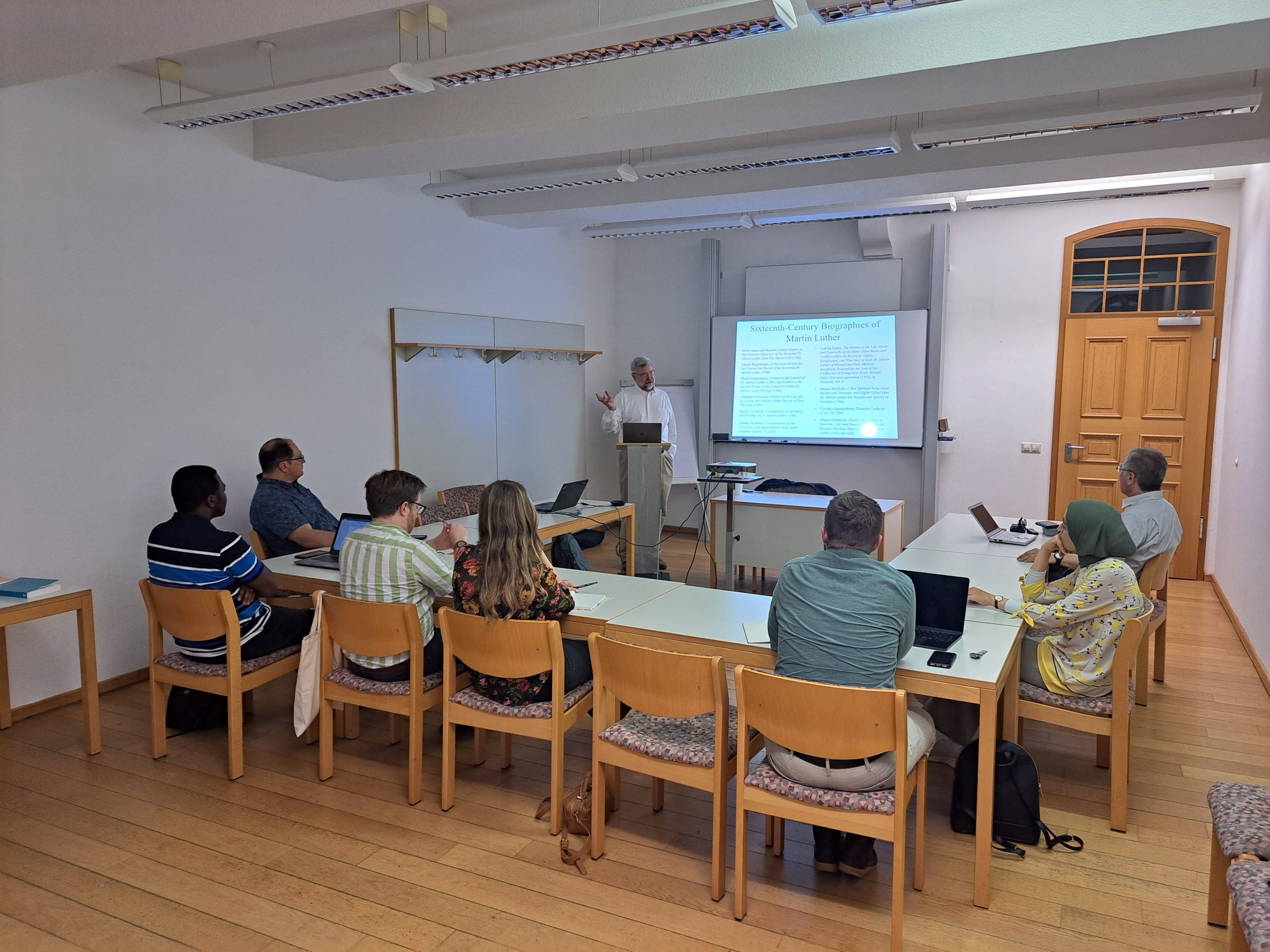On Wednesday, June 7, the focus was on the starting point of the Reformation: the theology of Martin Luther. First, Luther’s Reformation theology was biographically classified with the help of Luther’s preface to the first volume of his Latin works of 1545. A reading of the 95 Theses on Indulgences of 1517 and the Writings on Liberty of 1520 showed how a new understanding of the Christian faith grew out of a critique of the medieval system of penance. The modern distinction between divine and human agency helped to understand Luther’s speaking of justifying faith and the connection between justification and sanctification.
In the evening, Research Fellow Prof. Christopher Boyd Brown (Boston University) presented 16th-century Luther biographies. He paid special tribute to Johannes Mathesius, the pastor of Joachimsthal, who wrote the first comprehensive description of Luther’s life, setting an example for centuries to come.


